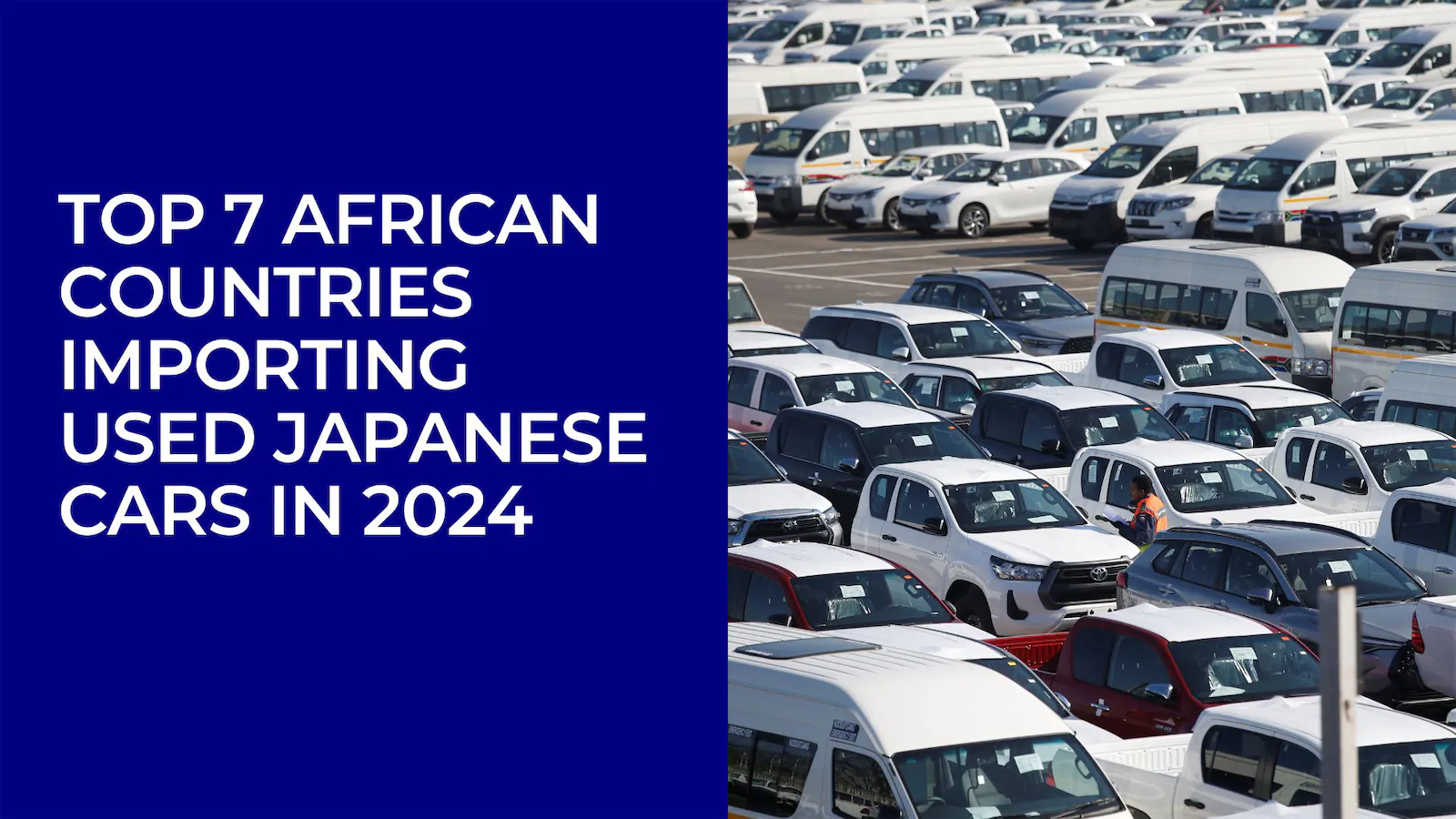
In recent years, the demand for used Japanese cars has seen exponential growth across Africa. The combination of affordability, durability, and reliability of Japanese vehicles has cemented Japan’s position as a global leader in the used car export market. For many African nations, used Japanese cars offer a practical solution to transportation needs, driven by the growing middle class, expanding urban areas, and the necessity for affordable yet dependable vehicles.
Why African Countries Rely on Used Japanese Cars
Japan is synonymous with quality automotive production, boasting renowned manufacturers such as Toyota, Honda, and Nissan. While brand-new vehicles are often out of reach for the average consumer due to high import duties and taxes, used vehicles present a more feasible option. Lower tariffs on used cars, combined with their affordability and ease of importation, have made them a popular choice for first-time buyers and small businesses.
According to data from Japanese Car Trade, the period from January to August 2024 saw significant import activity from African countries. Tanzania, Kenya, and South Africa emerged as the top three importers, reflecting the continent’s reliance on second-hand Japanese cars to meet transportation demands.
Top African Importers of Used Japanese Cars in 2024
1. Tanzania
With a total of 46,944 units imported, Tanzania ranks as the largest importer of used Japanese cars in Africa for the period. The country’s growing economy, coupled with its increasing population of middle-class buyers, has fueled this demand. Used vehicles are often purchased by individuals for personal use or small businesses such as logistics and public transportation services.
2. Kenya
Kenya, a major hub in East Africa, imported 38,861 units. The country’s urban centers, such as Nairobi and Mombasa, have witnessed a surge in demand for reliable yet affordable transportation. Japanese brands like Toyota and Nissan dominate the roads, reflecting a strong preference for vehicles that balance quality and cost.
3. South Africa
As the continent’s most industrialized economy, South Africa recorded imports of 33,900 units. While the country has a robust local automotive manufacturing industry, the used car market remains significant, catering to budget-conscious consumers and small businesses alike.
4. Uganda
Uganda imported 19,440 units, driven by its need for affordable transport options for both personal and commercial use. The country has seen rapid urbanization in recent years, creating a higher demand for vehicles in cities such as Kampala.
5. Democratic Republic of Congo (DRC)
With imports totaling 14,224 units, the DRC reflects the importance of affordable transportation in a nation characterized by vast distances and underdeveloped infrastructure. Used vehicles, particularly SUVs and trucks, are popular choices for navigating the challenging terrain.
6. Zambia
Zambia imported 9,848 units, highlighting its dependence on used cars for both urban and rural transportation. Japanese vehicles are especially valued for their fuel efficiency and low maintenance costs, essential for long-term use.
7. Zimbabwe
Rounding out the top seven is Zimbabwe, with 7,557 units imported. Despite economic challenges, Zimbabwean consumers continue to rely on used vehicles, which provide a practical and cost-effective solution for mobility.
The Role of Used Japanese Cars in Africa’s Automotive Market
Africa accounts for approximately 40% of global used vehicle imports, according to Mordor Intelligence. Notably, an estimated 85% of all vehicles in use on the continent are second-hand, illustrating the critical role these cars play in meeting transportation needs.
Japanese cars, known for their fuel efficiency, reliability, and longevity, align perfectly with the requirements of African buyers. Models such as the Toyota Corolla, Honda Fit, and Nissan X-Trail are frequently seen on African roads, favored for their ability to handle varied terrains and climates.
A Competitive Global Market
While Africa remains a key market for Japanese used cars, other regions also drive demand. In August 2024, the United Arab Emirates imported the highest number of used cars from Japan, totaling 16,284 units. Russia followed closely with 15,153 units, while Tanzania ranked third globally with 7,725 units imported during the same month.
This competition underscores the importance of Japanese used cars in the global automotive market. However, Africa’s unique economic landscape ensures it remains a priority destination for these exports.
Conclusion
The growing demand for used Japanese cars in Africa is a testament to the affordability, reliability, and quality of vehicles produced in Japan. Countries like Tanzania, Kenya, and South Africa have emerged as leaders in the import market, meeting the diverse transportation needs of their populations. As Africa’s middle class continues to expand, and urbanization accelerates, the reliance on used Japanese cars is unlikely to wane.
For Japanese exporters and African buyers alike, the mutual benefits of this trade are clear. Used vehicles bridge the gap between quality and affordability, enabling millions of Africans to access reliable transportation while providing Japanese exporters with a steady and growing market.

